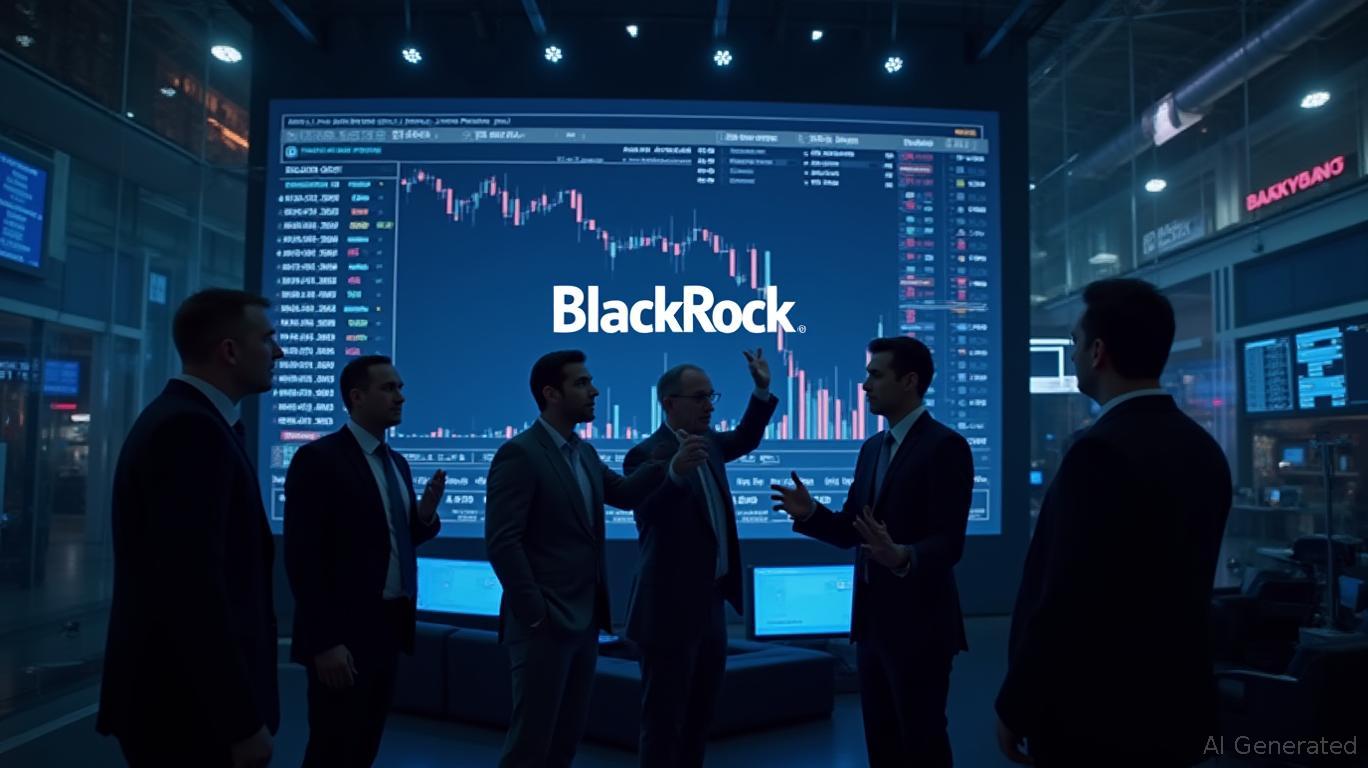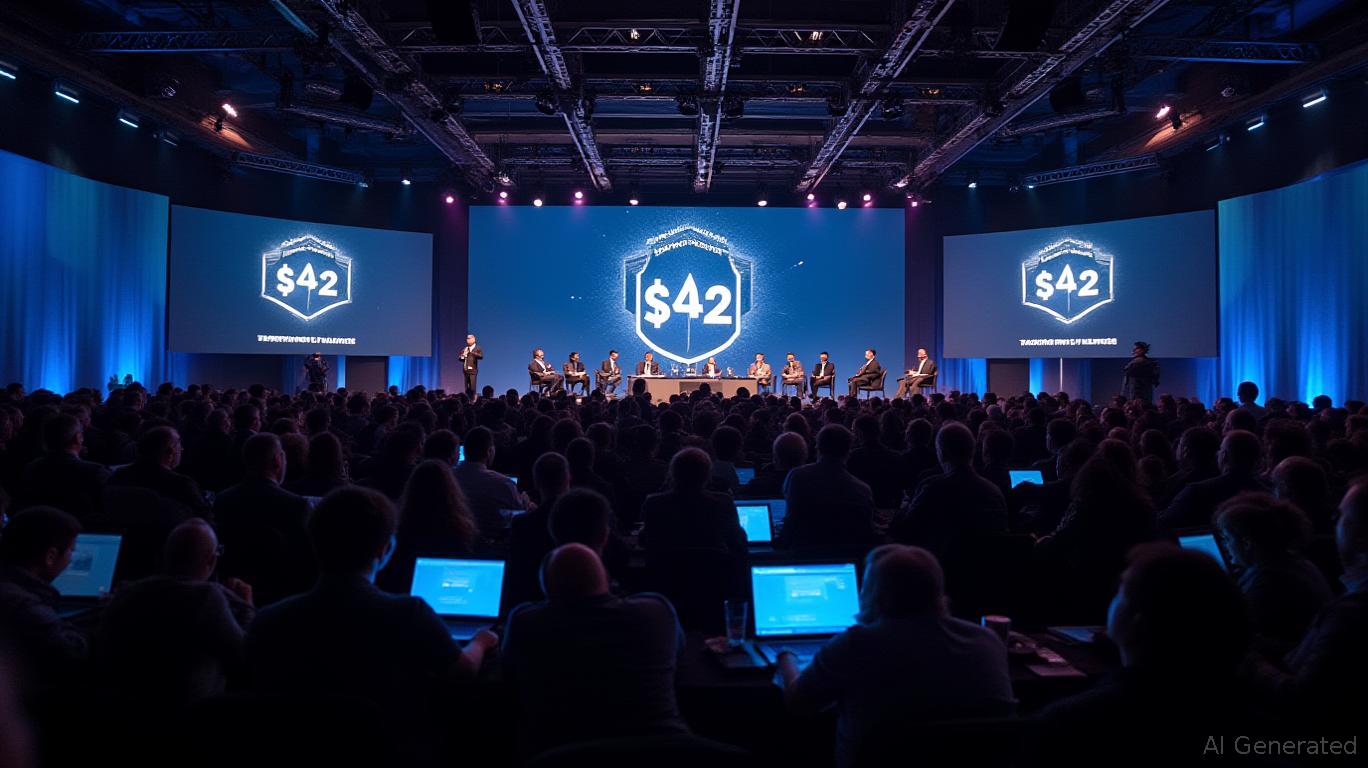Latin America's rapid adoption of stablecoins establishes a new benchmark for international payments
- Argentina's Ripio launched wARS, a peso-pegged stablecoin on Ethereum, Base, and World Chain to streamline Latin American cross-border payments. - The stablecoin enables 24/7 low-cost transfers, bypassing traditional banking intermediaries and U.S.-dollar dependencies in Argentina and Brazil. - Latin America's $27 trillion 2024 stablecoin volume outpaces major card networks, positioning the region as a global leader in blockchain-based remittances. - Ripio plans to expand local-currency stablecoins acros
Ripio, a leading Argentine crypto exchange, has introduced wARS—a digital peso stablecoin aimed at simplifying remittances and cross-border transactions throughout Latin America. This stablecoin, which maintains a 1:1 peg with the Argentine peso, is accessible on
With wARS, Ripio seeks to resolve inefficiencies in the current financial landscape by offering fast, transparent, and cost-effective transfers. The stablecoin is designed for business settlements, personal remittances, and even yield-generating crypto applications. For example, someone in Brazil can instantly send wARS to an Argentine recipient, eliminating intermediaries and reducing costs compared to traditional banking or dollar-based stablecoins. Sebastian Serrano, Ripio’s CEO, described the launch as a “milestone” for both the company and the region, highlighting that the stablecoin sets a “new benchmark for blockchain payments and remittances using currencies familiar to millions,” according to

This project is part of Ripio’s broader plan to grow its infrastructure throughout Latin America. The exchange intends to roll out similar stablecoins for other local currencies, further connecting regional fiat money with blockchain networks, as noted by
Ripio’s wARS also positions the platform to benefit from the region’s increasing demand for digital currencies. In 2024, Latin America’s stablecoin transaction volume reached $27 trillion, surpassing the combined totals of Visa and Mastercard, according to Bitcoin.com. By providing a stablecoin tied to a local currency, Ripio lessens dependence on U.S.-focused options such as
Looking forward, the adoption of wARS could spark a broader move toward fully digital financial systems in the region. Argentine media suggest that wARS might become a model for similar projects in neighboring nations, paving the way for a connected stablecoin ecosystem across Latin America. If widely embraced, these systems could lower transaction fees, promote financial inclusion, and challenge traditional remittance channels.
This launch highlights a significant global development: stablecoins are evolving beyond trading instruments to become essential components of decentralized finance. As regulations become clearer and infrastructure matures, Latin America’s leadership in the stablecoin space may grow, with Ripio’s wARS playing a pivotal role in this evolution.
Disclaimer: The content of this article solely reflects the author's opinion and does not represent the platform in any capacity. This article is not intended to serve as a reference for making investment decisions.
You may also like
Regulatory Concerns Intensify with the Introduction of South Korea's KRW1 Stablecoin into Arc's International Network
- Circle's Arc blockchain, designed as an "economic operating system," offers sub-second finality and USDC-based fees to streamline global finance. - South Korea's BDACS plans to deploy KRW1, a won-pegged stablecoin on Arc's testnet, bridging Korean markets to global stablecoin networks. - Arc's testnet has attracted 100+ institutions including BlackRock and Visa, aiming to redefine cross-border payments and asset tokenization. - Regulatory debates persist as South Korea's Bank of Korea proposes restrictin

Bitcoin News Update: BlackRock's ETF Supremacy Raises Concerns for Altcoin Futures
- BlackRock's iShares Bitcoin Trust ETF dominated 2025 with $28.1B inflows, overshadowing $1.27B outflows from other spot Bitcoin ETFs. - Altcoin ETFs face uncertainty without BlackRock's support, despite JPMorgan/Bitget's $3–8B inflow projections for Solana and XRP. - DeFi innovation advanced via Avalanche's BTC.b bridging, while Blazpay and BullZilla presales attracted $1M+ in speculative capital. - Bitcoin traded near $110,000 amid $488M ETF outflows, with Saylor forecasting $150,000 by year-end driven

Romania Prohibits Unregulated Prediction Markets, Classifying Them as Gambling
- Romania's ONJN banned unlicensed prediction market Polymarket, classifying its user-driven bets on real-world events as gambling requiring a license. - Regulators warned that treating counterparty betting as "trading" creates legal risks for player protection, AML compliance, and state revenue collection. - The crackdown follows $600M+ in wagers on Romanian elections and joins bans in France, Belgium, and the U.S., where Polymarket faces EU licensing hurdles. - Despite securing a CFTC-licensed exchange a

Monero Faces a $342 Test: The Assurance of Privacy Against Widespread Doubt
- Monero (XMR) trades near $342, with traders monitoring key support/resistance levels amid mixed sentiment. - Analysts highlight $342 as a critical threshold; breakouts could drive bullish momentum, while dips below $325 risk corrections. - Privacy coin faces challenges from regulatory uncertainty and cautious institutional adoption despite growing DeFi use cases. - Broader crypto market shows mixed trends, with NFT sales declining and tech stocks like Nvidia surging.
